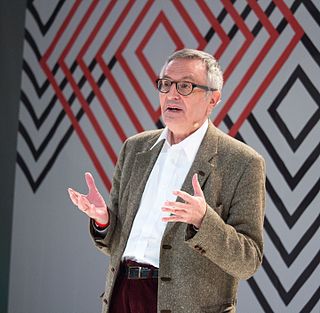books
Books like Straw Dogs: Thoughts on Humans and Other Animals
Straw Dogs: Thoughts on Humans and Other Animals
2002, John Gray
2.2/5
If you are an agnostic with few illusions who seeks the consolations of philosophy; if you are fortified by Ligotti’s bleak analysis (A Conspiracy Against the Human Race) and sustained by Cioran’s grim maxims (A Short History of Decay); if the fiction of J.G. Ballard, Will Self, and Jim Crace is congruent with your assumptions, congenial with your attitudes; then John Gray’s Straw Dogs may be the book for you.The atheist Gray, who rejects the assumptions of Christianity, here targets the contemporary consensus of humanism. In ridding itself of theistic illusions, Gray believes, secular humanism didn’t go nearly far enough. For Gray, Utopianism is a variant of the Kingdom of God, progress a non-theistic version of salvation history, the exaltation of human consciousness and the celebration of free will little more than the vestiges of a repressed belief in the integrity and persistence of the immortal soul. Gray argues that there is no real evidence for any of these commonly accepted beliefs: human consciousness is fitful, free will illusory, progress a fiction (history is cyclical, not forward-looking), and ”utopia”—given the contrary nature of man—will be (at best) the occasional result of autocratic, repressive regimes.Although Gray’s book challenges our comfortable assumptions, it also offers its own severe form of consolation. If we cease to believe in progress, to yearn for utopia, we may save ourselves from continual disappointment; if we cease to believe in a unitary self in command of fictive choices, we may more easily immerse ourselves—as the Daoist and Zen Buddhist do—in the successive ebb and flow of time, the "lucid dream" which constitutes humankind’s richest simulacrum of reality.Although Gray’s laconic style lacks Cioran’s witty ironies and Ligotti’s deadpan humor, he makes up for it with his wide-ranging scholarship and the concentrated power of his thought. There is much in this book to ponder, much to which a thoughtful reader may return, again and again.Here are eight of my favorite passages:\
* * * * * The destruction of the natural world is not the result of global capitalism, industrialisation, 'Western civilisation' or any flaw in human institutions. It is a consequence of the evolutionary success of an exceptionally rapacious primate. Throughout all of history and prehistory, human advance has coincided with ecological devastation.* * * * * Cities are no more artificial than the hives of bees. The internet is as natural as a spider's web. As Margulis and Sagan have written, we are ourselves technological devices, invented by ancient bacterial communities as means of genetic survival: 'We are a part of an intricate network that comes from the original bacterial takeover of the Earth. Our powers and intelligence do not belong specifically to us but to all life.' * * * * * Among us, science serves two needs: for hope and censorship. Today, only science supports the myth of progress. If people cling to the hope of progress, it is not so much from genuine belief as from fear of what may come if they give it up. * * * * * Over the past 200 years, philosophy has shaken off Christian faith. It has not given up Christianity's cardinal error — the belief that humans are radically different from all other animals. * * * * * Postmodernists parade their relativism as a superior kind of humility — the modest acceptance that we cannot claim to have the truth. In fact, the postmodern denial of truth is the worst kind of arrogance. In denying that the natural world exists independently of our beliefs about it, postmodernists are implicitly rejecting any limit on human ambitions. By making human beliefs the final arbiter of reality, they are in effect claiming that nothing exists unless it appears in human consciousness. * * * * * Even the deepest contemplation only recalls us to our unreality. Seeing that the self we take ourselves to be is illusory does not mean seeing through it to something else. It is more like surrendering to a dream. To see ourselves as figments is to awake, not to reality, but to a lucid dream, a false awakening that has no end. * * * * * Action preserves a sense of self-identity that reflection dispels. When we are at work in the world we have a seeming solidity. Action gives us consolation for our inexistence. It is not the idle dreamer who escapes from reality. It is practical men and women, who turn to a life of action as a refuge from insignificance. * * * * * Other animals do not need a purpose in life. A contradiction to itself, the human animal cannot do without one. Can we not think of the aim of life as being simply to see?\

Filter by:
Cross-category suggestions
Filter by:
Filter by:
Filter by:
Filter by:
Filter by:
Filter by:
Filter by:
Filter by: